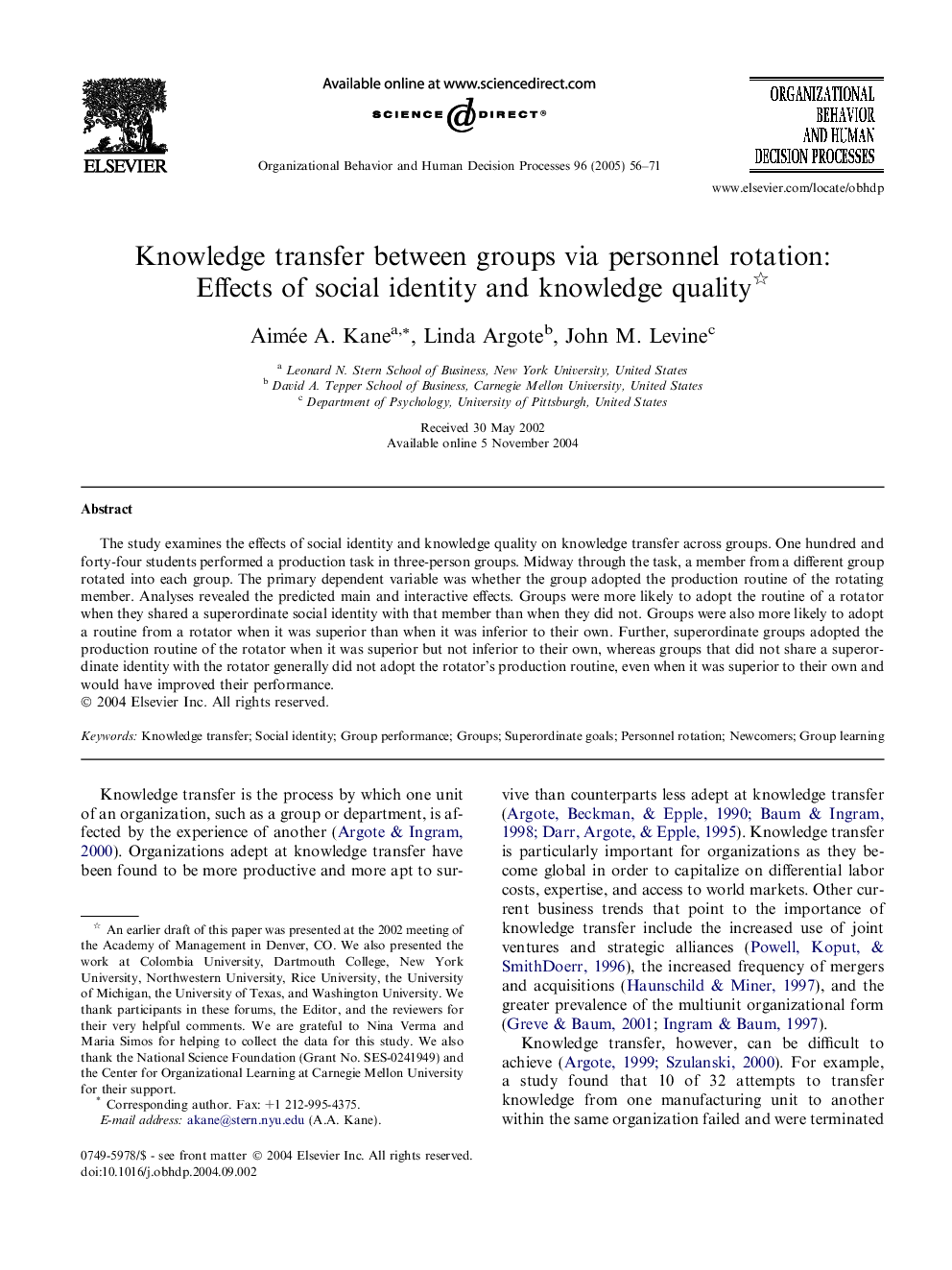| Article ID | Journal | Published Year | Pages | File Type |
|---|---|---|---|---|
| 10439947 | Organizational Behavior and Human Decision Processes | 2005 | 16 Pages |
Abstract
The study examines the effects of social identity and knowledge quality on knowledge transfer across groups. One hundred and forty-four students performed a production task in three-person groups. Midway through the task, a member from a different group rotated into each group. The primary dependent variable was whether the group adopted the production routine of the rotating member. Analyses revealed the predicted main and interactive effects. Groups were more likely to adopt the routine of a rotator when they shared a superordinate social identity with that member than when they did not. Groups were also more likely to adopt a routine from a rotator when it was superior than when it was inferior to their own. Further, superordinate groups adopted the production routine of the rotator when it was superior but not inferior to their own, whereas groups that did not share a superordinate identity with the rotator generally did not adopt the rotator's production routine, even when it was superior to their own and would have improved their performance.
Related Topics
Social Sciences and Humanities
Business, Management and Accounting
Marketing
Authors
Aimée A. Kane, Linda Argote, John M. Levine,
